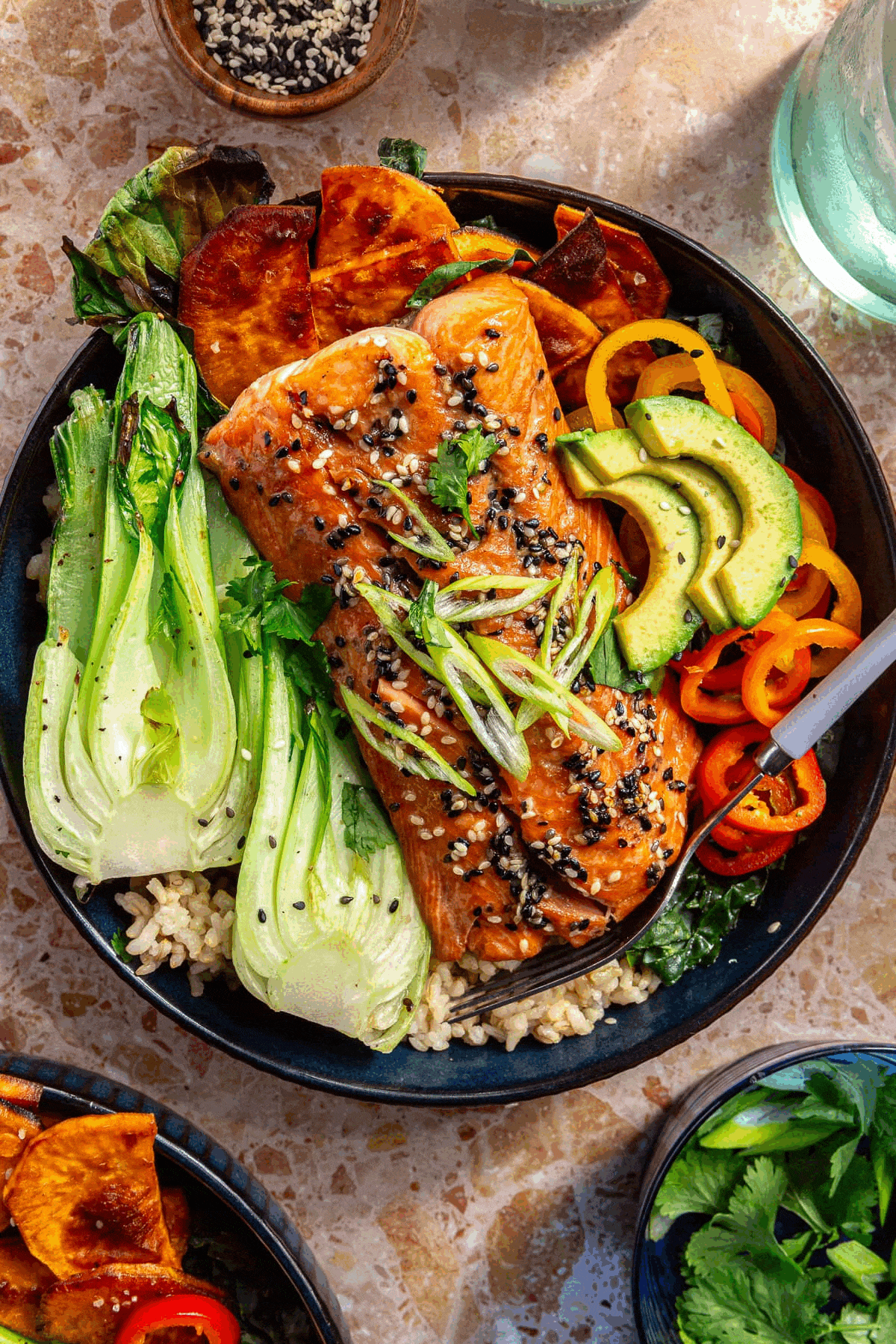
Sharing something I wish I knew a little sooner: high lipase in breast milk. Ugh. Let me set the scene: the first few months of Hayes’ life, I was so diligent about building up a stash of breast milk. Anytime I had extra, I’d freeze it, thinking I’d have this great backup supply for when I needed it or whenever I eventually stop breastfeeding, I can wean off this way.
One night, around 9 weeks postpartum, we ran out of fresh milk in the fridge, and I figured, “No big deal. I’ll just grab a bag from the freezer.” I felt like I was on top of things. So, I warmed it up, started feeding it to Hayes before bed, and immediately noticed something was off. He was visibly uncomfortable and stressed. I knew something wasn’t right because he was fine before I started feeding him.
I kept thinking, “What is happening? This is so weird.” It wasn’t until the bottle was almost finished that I decided to taste the milk myself—and oh my god. Awful. It had this metallic, soapy flavor and smell. I felt HORRIBLE knowing I had just fed that to my baby, and, sure enough, he threw up three times after. Cue mom guilt times a million.
I was determined to figure out what went wrong, so I grabbed another bag from a different week in the freezer, thinking maybe it was a one-off issue. Nope. Same exact problem. That’s when I texted a friend, asking if she’d ever heard of this happening. Turns out, she’d gone through the exact same thing after building up her freezer stash for 8 months. She introduced me to the reason: high lipase.
What Is High Lipase?
Basically, high lipase is an enzyme that, when present in breast milk, can alter the taste and smell once the milk is frozen. The milk isn’t actually spoiled—it’s perfectly safe to drink. But the taste? Not so great. Some babies are okay with it, while others (like Hayes) just can’t tolerate it. It was honestly such a sad night knowing all the hard work I put into pumping and freezing went to waste.
What To Do With “Bad” Breast Milk?
Many babies actually won’t mind the high lipase milk, but some do. If that’s you, instead of tossing all that milk, I got some great recommendations from fellow moms:
- Adding a drop or two of alcohol-free vanilla extract to the milk to mask the off taste. I just ordered some, so fingers crossed this works.
- Using the milk in baths—breast milk is so healing, especially for skin issues like eczema. Hayes has had a few ~fancy milk bomb baths~ since finding out about the lipase.
- Saving the milk for when Hayes starts solids. You can mix it with purees, smoothies, or even oatmeal.
- Donating it! There are always babies in need of breast milk, and some babies won’t mind the taste.
If you’re going through something similar, don’t throw it all away! There are ways to put it to good use.
Read my blog post, What To Do When You Have High Lipase Breastmilk HERE.
One Way To Potentially Prevent It: Scalding The Milk Before Freezing
After doing some research and chatting with other mamas, I learned that scalding the milk before freezing can prevent the lipase from causing that weird taste and smell. From a dietitian standpoint, I did some research on retaining nutrients. Here’s what I found:
Scalding breast milk does reduce some of the nutrients, but it doesn’t remove all of them. The main thing you lose is some of the immune-boosting enzymes and antibodies that make breast milk so beneficial. However, it still retains most of its nutritional value, including essential fats, proteins, and carbohydrates, so it’s still a great source of nutrition for your baby.
The process of scalding deactivates the lipase enzyme, which prevents that soapy or metallic taste that comes with high lipase. While it’s true that scalding reduces some of the more delicate components like immunoglobulins and certain vitamins (especially Vitamin C), the majority of the important nutrients like fats, proteins, and calories remain intact.
So, while it’s not as perfect as fresh milk, scalded milk is still a highly nutritious option if your baby is sensitive to the taste changes caused by high lipase.
Here’s how you scald the milk:
- After pumping or using the milk that’s stored in the refrigerator (up to four days) pour your fresh milk into a small pot.
- Heat the milk on the stove over medium heat, stirring occasionally.
- Watch for tiny bubbles to form around the edges of the pot—this is key. You don’t want to bring the milk to a full boil (which could destroy some of the beneficial nutrients), just a gentle simmer. The temperature should be about 180°F if you have a thermometer handy.
- Immediately remove the milk from the heat once you see the bubbles.
- Cool it down quickly by placing the pot in a cold water bath (just put it in a larger bowl or sink filled with cold water).
- Once the milk is cooled, store it in your freezer bags as usual.
Scalding deactivates the lipase, which stops it from breaking down the fats in your milk and changing the flavor. It’s a bit of extra work, but if your baby is sensitive to the high lipase taste, it can be a game-changer.
Scalding Worked For Me!
Honestly, this couldn’t have been better news. I can confirm this method worked for me, so if you also have high lipase and tried this trick, please let me know how it worked for you in the comments below! Now I can feed SO good about having some extra frozen milk in the freezer that doesn’t have that metallicy flavor like my previous milk had.
What I Learned
I also learned that high lipase levels can vary from pregnancy to pregnancy. Just because I have it now doesn’t mean I’ll have it with future babies. Makes things a little tricky now, though, especially whenever I need to be away from Hayes for longer stretches of time. It all comes down to how much fresh milk I have in the fridge, which is only good for four days.
Of course, I know we can eventually introduce formula, but I’ve made it this far (3 months!) exclusively breastfeeding, and I’d love to keep it up for a while longer. A few weeks after discovering the high lipase issue, things became stressful. My supply had dipped quite a bit, which I’ve heard is common around the 3-month mark. And now I can say I fully understand the saying “crying over spilled milk.” Without my freezer stash, I was feeling the pressure.
Luckily, my supply bounced back after I made sure to hydrate extra and eat tons of nutrient-dense foods. This is seriously so important!!
And shoutout to one of you guys on Instagram for recommending this supplement and this supplement from Amazon to help boost my supply—they’ve been helping so much, are organic, and made with clean ingredients.
Pro Tip For Future Breastfeeding Moms
If you’re planning to freeze breast milk, here’s my advice: freeze a small amount right away, and check it the next day to see if the taste or smell is off. If there’s a metallic or soapy aroma, you might have high lipase. This way, you’ll know from the start and can plan accordingly rather than freezing months’ worth before discovering the issue, like I did.
From the hundreds of messages I’ve received on Instagram, this is actually super common. But I had never heard of it until I experienced it myself. Breastfeeding can be such a rollercoaster… who knew!
Sending love to all the breastfeeding mommies out there—you’re doing amazing! ❤️
Shop My Amazon Storefront



Shop my entire storefront here — updated weekly.














I just found out this happened to me 🙁 3M PP and baby refused the bottle. It smells awful so I don’t blame her! My question is.. will ALL the freezer stash taste like this or might it only affect some??
Hi, while I’m not a mama yet, I’ve been a professional nanny for many years. I had a family who’s mom had this issue and so I would scald the milk she was saving and it also worked for her/babies! Also, on the note of milk decline, from what I’ve learned the best thing to build supply back up is to nurse more! Even if not much is coming out, the stimulation sends the signal to the milk glads to produce more. So glad you all are doing well!
Please don’t call your breast milk bad… it did not spoil. Your baby may have been uncomfortable for other reasons. Maybe just being bottle fed, and it’s factors that could have made him upset. Either way I would encourage to try to feed it to your baby as is so you don’t loose any of the antibodies in it.